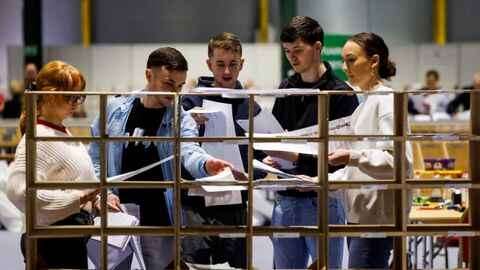Current coalition members receive 87 seats, one less than the required 88, as a result of the Green Party’s sharp drop from 12 to only one seat.
In the general election on November 29, Ireland’s ruling coalition was unable to gain the 88 seats required to form a government.
Fianna Fail maintained its position from the 2020 elections as the largest party in the 174-seat Dail, or House of Representatives.
The party grew from 38 to 48 seats under the leadership of Michael Martin, who is Ireland’s Deputy Prime Minister, Foreign Affairs Minister, and Defense Minister.
The Fine Gael party, under by Prime Minister Simon Harris, improved its seat count from 35 to 38, finishing third.
A junior coalition partner, the Green Party, witnessed a sharp drop from 12 seats to just one.
The coalition partners received 87 seats as a result of the election, falling short of the majority threshold.
In the meantime, a number of ministers lost their seats, including State Minister Anne Rabbitte, Tourism Minister Catherine Martin, and Health Minister Stephen Donnelly.
The lowest attendance since 1923
With an increase in seats from 37 to 39, Sinn Fein, Ireland’s primary opposition party and supporter of Irish unification, continued to hold the second-largest number of seats.
Eleven seats were won by the Labour Party and the Social Democrats, and sixteen independent candidates were elected to parliament.
One seat was won by the newly established 100% Redress Party.
The lowest voter turnout since 1923 occurred, with only 59.7% of the 3.4 million registered voters casting ballots.
Ivana Bacik, the head of the Labour Party, said she would discuss possible government formation tactics with the Green Party and Social Democrats.
At Harris’s request, President Michael D. Higgins dissolved the parliament on November 8.






